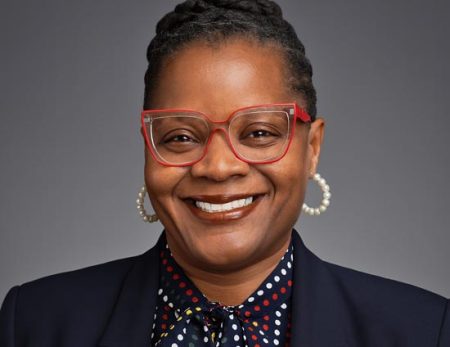The Gift That Keeps On Subtracting
Students are being denied their right to a sound, basic education because of inadequate school funding.

Photo: Tim Barnwell
Legislative News by Nelda Holder –
The NC General Assembly refuses to fully fund the public school system.
Heather Koons has a clear vision of what the organization she represents, Public Schools First NC, wants the North Carolina Legislature to (finally) do after some 23 years of embattled foot-dragging. It’s a similar vision to that held by a number of nonprofit organizations working for the betterment of the state.
“What we would like to see happen is that our full legislative body support funding as outlined in Leandro comprehensive plan for strong public schools in our state,” said Koons, PSFNC’s communications director. “We have the money right now,” she added, referring to this fall’s state surplus of some $9 billion dollars.
“They have increased allocation to fund things like vouchers, including a half-million marketing project because it’s not being fully utilized,” Koons pointed out about a legislative program that offers tuition assistance for financially qualified students to attend private schools.
The Leandro money—the result of a landmark legal suit against the state (named for Robb Leandro, one of the plaintiffs, who was in the eighth grade when the lawsuit was filed)—would instead directly fund public schools, aimed at improving equity in education for all students. “Everything related to the schools,” said Koons. “Staffing, retaining staff, resources, textbooks, materials.”
That dovetails specifically with her organization’s goals as a nonpartisan, nonprofit, statewide advocate for pre-K through 12th grade public education issues, seeking “one unified system of public education” that prepares each child for success “in school and life.”
PSFNC and many other advocacy groups and education professionals are closely monitoring the current court proceedings regarding the Leandro case, with a major decision due soon regarding some $427 million in new state education funding as the first phase of an eight-year plan. Several other state groups supporting the Leandro decision and its application to the state school system include the North Carolina Early Education Coalition, North Carolina Justice Center, Public School Forum of North Carolina, American Civil Liberties Union NC Chapter, WakeEd Partnership, and Disability Rights North Carolina.
Once more, with feeling
So what’s it all about?
By now you’ve seen this topic before. Again, and again. If you are slightly weary of it, so am I. But here we are, in 2022, and the North Carolina General Assembly is still—at least the majority of its members—refusing to fully fund the public school system in this state as it was charged to do in the Leandro decision more than 20 years ago.
Forgive me as I get a bit wonky in the next few paragraphs.
Small history lesson. In 1994, the now-legendary Leandro case was filed on behalf of parents, students, and school districts school systems in Cumberland, Halifax, Hoke, Robeson, and Vance Counties, charging that a number of students were being denied their right to a sound, basic education because of inadequate school funding. This applied, they claimed, particularly to students of color and those from families with low incomes.
In 1997, the case reached the North Carolina Supreme Court (Leandro v. State), asserting that the State of North Carolina and its State Board of Education had violated NC General Statutes by failing to assure “sufficient education to meet the minimal standard for a constitutionally adequate education.” Buncombe County and the City of Asheville had become plaintiff-intervenors by that time.
Included in the inequalities outlined were “inadequate school facilities with insufficient space, poor lighting, leaking roofs, erratic heating and air conditioning, peeling paint, cracked plaster, and rusting exposed pipes.” Outdated book collections and a lack of technology were cited, and the discrepancy of local salary supplements for wealthier districts which attracted high quality teachers, adding to the disparity.
For the more-urban school districts such as Asheville, plaintiff-intervenors claimed a need to educate a large number of students with extraordinary needs such as special education services, special English instruction, and academically gifted programs. Serving such needs was diverting resources from their regular education programs. Additionally, these districts claimed that singling out certain poor rural districts to receive supplemental funds ignored the growth in urban areas where fiscal resources were drained by “high levels of poverty, homelessness, crime, unmet health care needs, and unemployment.”
The State’s original argument against these claims included a charge that the trial court lacked jurisdiction and that the North Carolina Constitution did not guarantee a right to a “qualitatively adequate education.” The trial court denied these claims, but the State then challenged the denial in the NC Court of Appeals. A 1996 appeal decision declared that “the right to education guaranteed by the North Carolina Constitution is limited to one of equal access to the existing system of education and does not embrace a qualitative standard.”
Equal access, or equal quality?
The Court of Appeals ruling was then appealed to the State Supreme Court in 1997, where a delicate distinction was drawn. The Supreme Court unanimously found that the Court of Appeals erred in holding that no right to a “qualitatively adequate education” was guaranteed under the Constitution. Its conclusion was that “the right to education provided in the state constitution is a right to a sound basic education. An education that does not serve the purpose of preparing students to participate and compete in the society in which they live and work is devoid of substance and is constitutionally inadequate.”
The decision then pointed out the General Assembly’s own decision, expressed in Chapter 115C of the General Statutes: “It is the policy of the State of North Carolina to create a public school system that graduates good citizens with the skills demanded in the marketplace, and the skills necessary to cope with contemporary society…. (and to) insure a quality education for every child.”
The Supreme Court’s opinion was that the pertinent articles of the North Carolina Constitution combine to “guarantee every child of this state an opportunity to receive a sound basic education in our public schools,” providing certain listed basics which would “enable the student to compete on an equal basis with others in further formal education or gainful employment in contemporary society.”
From 1997 until now
The case has been batted back and forth between the Court of Appeals, the trial court, and the Supreme Court, with additional school systems intervening and changes crafted by the General Assembly. Superior Court Judge Howard E. Manning, Jr., played a key role in shaping the course of action until his mandatory retirement in 2015, when the case was reassigned to Judge W. David Lee. Lee was instrumental in the eventual appointment of an independent consultant—WestEd—which submitted a report on the State’s duty under the Constitution in June 2019.
Key findings by WestEd included the need to provide adequate and equitable resources, qualified and well-prepared principals in each school, a well-prepared and diverse teaching staff, a revised student assessment system and school accountability system, and an expert panel to assist the Court in monitoring state policies and progress. The price tag to achieve this was around $8 billion over eight years.
Back to court they went, with legislative leadership claiming that only the General Assembly could determine how state funds were to be spent. And on November 30, 2021, Lee’s spending order was overturned—under questionable circumstances of timing. The case now sits before the NC Supreme Court again, to determine whether $1.7 billion can be transferred from the state treasury to fund the Leandro action plan.
Judge Lee has been replaced, as of March of 2022, with Superior Court Judge Michael L. Robinson, who was given 30 days to review a potential amendment of Lee’s court order. A Winston-Salem business court judge, Robinson is now in charge of the monumental Leandro implementation. And in a report from the State Budget Office just received, as reported by WRAL News in Raleigh, only “55% of the first two years of the Comprehensive Remedial Program ordered by the court” has been given the resources required. “That means 31 of the initiatives that were supposed to be implemented over the next two years were ignored,” the WRAL investigation revealed.
And here we stand. The original children involved in Leandro are adults now. The children who need the same help and equity today are still victims of a system that prefers to haunt the halls of justice seeking reprieve, instead of doing what they are asked and ordered to do for those same halls.
Nelda Holder is the author of The Thirteenth Juror – Ferguson: A Personal Look at the Grand Jury Transcripts.







